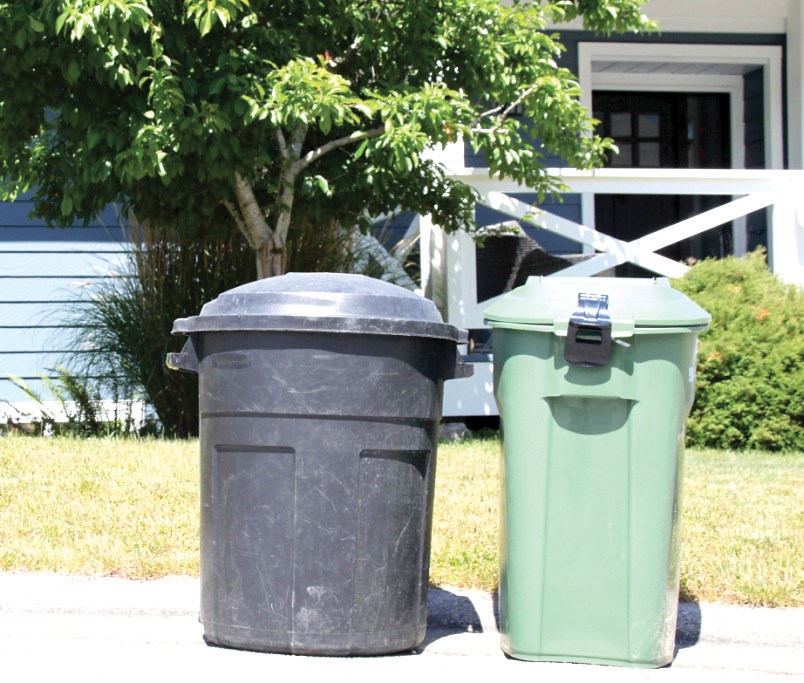Residents of Halfmoon Bay, Roberts Creek, Elphinstone and West Howe Sound will have to adjust to a new garbage day routine starting Oct. 6.
For one thing it’s not just “garbage day” anymore – it will be garbage day and green bin day.
In an update for the Sunshine Coast Regional District’s (SCRD) infrastructure services committee Sept. 17, general manager of solid waste Robyn Cooper said the delivery of new, 45-litre bins containing information about the food waste program and 10 “sample” bags will be complete by the end of the month.
“We have two areas in the SCRD that will be serviced utilizing a common bin, not curbside – Roberts Creek cohousing and the Secret Cove townhomes,” Cooper said. “We’re in direct communication with both of those areas to make sure that they receive their materials.”
Collection will begin Oct. 6 and for that first week households will be able to put out both a green bin with food waste and a garbage can with regular trash. Starting the following week, weekly pickup will be for green bins only with garbage being collected every second week.
Cooper said her department has already been getting questions about the program as well as positive feedback and some opt-out requests.
There is no opt-out option for the green bin program and people will not be allowed to put any green-bin-acceptable material in their regular garbage.
One of the main questions from the committee was about how contamination will be screened.
Cooper said for the first two weeks staff, assisted by volunteers from the solid waste management plan monitoring advisory committee (PMAC) and employees of Waste Management, the contractor, will do curbside audits.
“That will involve being ahead of the truck, lifting the lid and looking for contamination,” she said. “If there is contamination then an ‘oops’ sticker would be placed [on the bin] and the bin would be left behind.”
Cooper said SCRD staff and volunteers will also monitor the loads as they arrive at Salish Soils for composting.
In the longer term, staff at Salish Soils will be expected to watch for contamination and report it to the SCRD, and Waste Management drivers will look into the bins before emptying them into the truck and leave them behind if they see any contamination.
The $2.3-million, five-year contract for the program was awarded in January 2020.
A drop-off for Area A residents is expected to be established next year after being put on hold to save money as the regional district contends with budget pressures related to COVID-19.



